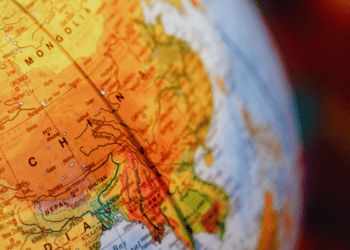This article was published by the Macdonald-Laurier Institute’s Washington office, the Center for North American Prosperity and Security (CNAPS.org). It originally appeared in the Globe and Mail.
By Jerome Gessaroli, February 12, 2025
U.S. President Donald Trump’s tariff threats against Canada have become a repeating nightmare – an economic game of brinksmanship in which Ottawa scrambles to appease his latest grievance, only to face a new ultimatum weeks later. Just one week after Mr. Trump announced a 30-day reprieve for Canada, he pushed forward a 25-per-cent tariff on all steel and aluminum imports.
Mr. Trump’s strategy functions like a game of chicken, in which he throws his steering wheel out the window to project unshakable commitment, betting that Canada will swerve first to avoid a collision. This unpredictable cycle is deliberate. Canada should recognize the trend and stop reacting to ad-hoc grievances. Instead, we should propose formal negotiations on a revised United States-Mexico-Canada Agreement (USMCA) ahead of the scheduled date of July, 2026.
Canada should do this because the current situation is untenable: Mr. Trump does not use tariffs as a serious economic policy, but as a negotiating sledgehammer. By threatening extreme measures, such as a 25-per-cent tariff on almost everything, he forces concessions while dodging the fallout of full implementation.
His vocal and public commitment to his “love” of tariffs makes his threats appear credible. The sheer size of the U.S. market strengthens his hand even further. Smaller economies such as Canada depend on access to U.S. markets, so they often concede to avoid even the possibility of tariffs. By rotating grievances, whether immigration, drug trafficking or trade deficits, Mr. Trump keeps trading partners off balance, ensuring that no concession ever becomes a permanent solution.
Repeated tariff threats create economic instability, drive away investment and push companies to relocate to the U.S. just to escape uncertainty. By pushing to renegotiate USMCA, Canada calls out this playbook and takes action to escape it.
Mr. Trump’s strategy has several vulnerabilities that give Canada advantages in USMCA talks. He relies on stock market performance as a political barometer of his administration’s success, calling it “a beautiful thing.”
His sensitivity to stock market reactions can be exploited. When tariffs on Canada and Mexico appeared imminent, markets dropped almost 2 per cent. Goldman Sachs projected a 5-per-cent drop in the S&P 500 index if tariffs went ahead, equal to a US$2.5-trillion loss in market value. Tariffs were paused just hours after markets fell, suggesting that market pressure influenced Mr. Trump’s decisions.
While Mr. Trump says the U.S. needs nothing from Canada, his actions belie this claim. The proposed 10-per-cent tariff on Canadian oil, compared with 25 per cent on other imports, signals his understanding that disrupting Canada’s oil flow could raise gasoline prices in states in the U.S. Midwest, Great Lakes and Northeast. His rare admission that tariffs could cause “some pain” for Americans further undermines his stance that foreign goods are unnecessary.
The 2026 U.S. midterm elections further limit Mr. Trump’s ability to impose long-term tariffs. With Republicans holding thin majorities in Congress, Republican legislators in swing districts are vulnerable to economic disruption. Tariff-driven inflation and unemployment in swing states such as Michigan (auto parts) or the Midwest (energy) could cost the party seats. This electoral timing gives Canada some leverage.
The 2026 U.S. election cycle provides a strategic deadline – Mr. Trump will be eager to claim a trade “win” while avoiding inflation risks and negative headlines about job losses during the midterm campaign. By bundling multiple trade issues into a single negotiation and offering modest, politically valuable concessions, Canada can give Mr. Trump a victory to show to his base without making significant compromises to its own economic interests.
In addition to formal negotiations, Canada should continue using public diplomacy to highlight the economic costs of tariffs, focusing on vulnerable congressional districts. By partnering with U.S. industries in swing states, Canada can publicize the local impact – job losses, higher consumer prices and supply chain disruptions.
Mr. Trump’s obsession with stock market performance can be used further to Canada’s advantage. A campaign co-ordinated with U.S. industries that rely on Canadian trade, including auto manufacturers and energy refiners, could drive headlines such as “Tariffs Could Cost Ohio 10,000 Jobs” – a narrative that would alarm Republican incumbents and pressure the President.
If these announcements were timed before key market events, such as Federal Reserve meetings or company earnings reports, they could increase market volatility. Collaborating with bipartisan legislators opposed to tariffs would further increase political risks.
While Mr. Trump’s tariff threats are potent, they have clear limitations. Canada’s success in future negotiations depends on recognizing and exploiting these constraints. Canada should push for USMCA talks in 2025, offering Mr. Trump symbolic wins in exchange for tariff stability. The goal is not to win concessions, but to establish a more predictable trading relationship.
Jerome Gessaroli is a senior fellow at the Macdonald-Laurier Institute and leads the Sound Economic Policy Project at the British Columbia Institute of Technology.






